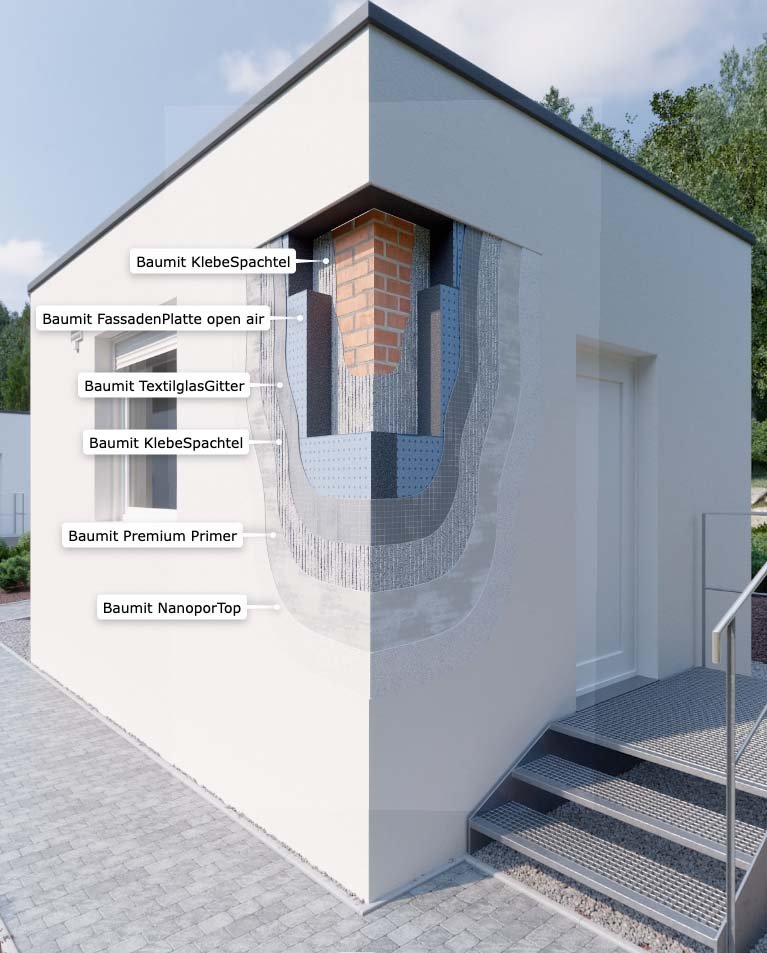The thicker the insulation material, the better thermal and sound insulation – tests in the VIVA park in Wopfing, Austria, prove that insulation makes life indoors more comfortable when it comes to sound.
Sound insulation and room acoustics are relevant for our well-being as well as our health. Buffering sounds from outside or adjoining rooms reduces stress and boosts our concentration, so adequate sound insulation can make the difference. According to sound measurements in the VIVA park a thermal insulation on solid walls can reduce the perceived loudness of external noise by up to 50 percent.
Which sound do we call noise?
Noise is subjective – it is not a physical concept. So who defines whether sound is perceived as unwanted and disturbing noise? Each and every one on their own. Sound that reaches our ear is a physical vibration of the air molecules. This vibration leads to small pressure fluctuations. The sound level is expressed in decibels (dB). In order to understand how loud we perceive differing amounts of decibels let us compare sound sources we all are familiar with.
A gunshot in the immediate vicinity has 160 dB
A circular saw has 100 dB, a lawnmower 70 dB, the hum of a refrigerator 40 dB, a whisper 30 dB, a dripping faucet 20 dB and leaves rustling in the forest 10 dB. If you increase or decrease the sound level by 10 dB, the volume is either doubled or halved.
Building material withstanding external noise
If you want optimal protection against noise at home, you have to build concrete or clay block walls. This was proven in the Viva Park. Massive constructions are best in sound insulation. Solid houses have the best sound insulation values. Not long ago, it was still assumed that ETICs can do nothing for you when it comes to sound. Recent research of the Technical University Vienna has proven this wrong.
Baumit openTherm reduces exterior sound by 5 dB
Baumit openTherm, the breathable façade insulating panel, was found to improve the sound reduction index by 5 dB when 20 cm thick, compared to facades without thermal insulation. Some more good news: Façade-anchors do not necessarily have a negative impact on the sound reduction index. But how much are 5 dB and what do they mean for our well-being? For sound insulation, the following applies: the higher the value (in dB), the better the sound insulation. 10 dB plus means half the perceived noise level.
A reduction of 5 dB lessens the perceived loudness of transmitted sound events through the building part by 50 %
Taking this percentage into account, suffering from noise pollution is no longer necessary when you decide for a solid construction and thermal insulation. Thermal insulation thus serves many purposes at the same time. It leads to a healthier room climate, saves energy, CO2 and costs and helps us reduce noise pollution. A thing, surely to go for.


